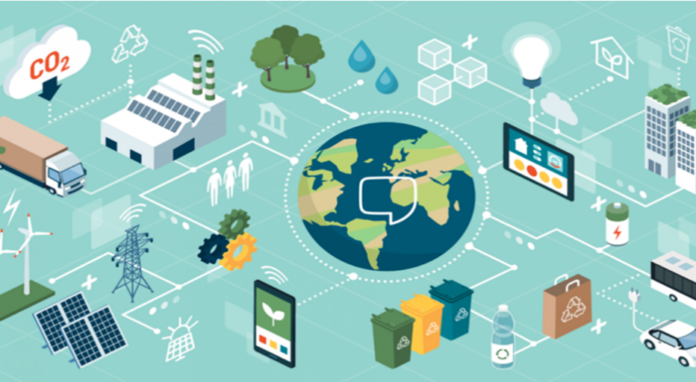There are many innovative approaches that you can take to address climate change. These approaches are not all-encompassing or fool-proof, and it doesn’t matter if someone is involved in an anti-climate change initiative if they are not completely invested in the idea. They have to be serious about being part of the change. Here are ten approaches that can be taken to address climate change.
Relying Less on Fossil Fuels
Most of the energy generated anywhere in the world is done by using fossil fuels. Even the energy used to extract fossil fuels is obtained by burning coal, oil, or gas.
The use of these non-renewable sources also increases the amount of greenhouse gases that are in the atmosphere. The more fossil fuel energy you use, the bigger your carbon footprint becomes.
Everyone needs to become less reliant on fossil fuels and start focussing on renewable energy sources, like solar and wind power.
Carbon Offsetting
This is when businesses or people invest in projects that negate their carbon footprint. There are different ways that this can be said to load full the definition of “Carbon Offsetting”.
Carbon offsetting initiatives can be categorised into four groups. Forestry and Conservation involve planting, growing, and protecting trees and rewilding areas.
Renewable Energy, another category, makes businesses less dependent on fossil fuels while making use of renewable natural sources.
Waste to Energy turns garbage and sewage into energy. Community-Focussed Initiatives focus on the education of people in poor communities by introducing technology.
Energy Efficiency
You have to limit the energy that you use, whether it is at home or at work. There are different ways to do this. Some are simple and easy, while others are more complicated and expensive.
The easiest way to limit energy usage is to switch off a light when not in a room. Replace traditional light bulbs with LED bulbs.
Ensure that your home or office is properly insulated and draught-proof. Turn off and unplug appliances when they are not being used. A more expensive way to be energy efficient is to replace regular windows with double-glazed glass.
Renewable Energy
Renewable energy is generated by sources that will never run out. Naturally, this does not include fossil fuels. Renewable energy is mostly considered to be clean energy that does not emit any kind of carbon.
These sources include solar, wind, hydro, tidal, and geothermal power. Solar panels turn sunlight into usable energy.
Wind turbines are huge fan-like structures or miniature turbines for your garden, which make use of the wind to power generators with energy.
Hydroelectric energy is created when turbines are spun by great forces of water, like waterfalls or dams.
Tidal, or wave, energy is when generators are powered with energy created by the wave-like movement of water. Geothermal energy powers generators with steam that comes from very hot water underneath the Earth.
Sustainable Transportation
Most forms of transportation use petrol or diesel, which are created using fossil fuels. Nowadays, there are hybrid and electric cars available.
Hybrid cars use both fossil fuels and electricity, while electric cars use electricity. It is a good idea to use public transportation or to carpool instead of adding to the number of vehicles on the road.
An even better idea is to ride a bicycle to your destination or to walk there. When you’re travelling, you should try to use a train instead of an aeroplane. It might take longer, but you’ll get a more scenic experience.
Sustainable Diet
No matter how much you might like meat and dairy, the amount of greenhouse gasses produced by cows is staggering enough to convince you to eat more fruits, vegetables, grains, nuts, legumes, and seeds.
Some people have completely changed their diets to cut out meat and dairy entirely. This can also have positive impacts on your health and wealth.
The amount of food that we eat also has an impact on the environment. When we eat healthier, we also waste less food. Every bit of food that is wasted also wastes the resources that go into its production.
Sustainable Agriculture
Farmers can try to make their farming practices more organic and regenerative. Crops should be covered, fewer pesticides should be used, grazing should be on a rotational basis, and compost should be used instead of artificial fertilisers.
This will make the soil healthier, leading to healthier crops and a healthier climate as well. Support your local farmers instead of large-scale companies.
When you buy from local farmers, you get fresh produce for cheaper prices.
Supermarkets buy their produce on a large scale from mass producers who have to deliver the goods. You can go a step further and start your own vegetable garden or even a communal one.
Get Involved
You can get involved by donating to sustainability projects that deal with climate change and global warming. You can do it individually or as a business.
Donations enable sustainability projects to accomplish their mission successfully, which is to make a lasting and positive change. You can donate your money as well as your time.
Nowadays, volunteering can be expensive, but if you know where to look, you can find a cause to volunteer your services and time that won’t cost you too much money.
You can also look for areas in your local community where you can make a difference. Volunteering gives you a chance to take part in changing the world instead of just paying for it.
Reuse, Reduce, Recycle, and Repair
Plastic is non-biodegradable and fills up the ocean, landfills, and other natural habitats. The production thereof also emitted carbon. Try to buy fewer plastic items, recycle them, or reuse them.
Every item that you buy was manufactured during a process that caused greenhouse gasses to be emitted. Instead of just throwing something away when it is broken, you can repair and reuse it.
You can find other uses for items so that you lessen the amount of waste coming from your home or business. While recycling is a great initiative, there are items that can be reused instead.
Stay Informed and Speak Up
It is important to stay educated and informed about climate change and initiatives to counter it. Keep up with what people are saying, what research is being done, and any breaking news on global warming.
A great way to stay on top of information is to read websites and blogs and stay active on social media. Social media will allow you to see who is doing what regarding the issue and how you can contribute.
Social media also allows you to speak up and use your voice to spread the word. You can get even more people involved in the cause by informing them on your social media and sharing posts.
Conclusion
This article looks at ten innovative approaches to addressing climate change. It also gives a brief warning that no initiative will make a difference if you’re not completely invested in making a change. The ten approaches that are discussed include relying less on fossil fuels, carbon offsetting, energy efficiency, renewable energy, sustainable transportation, sustainable diet, sustainable agriculture, getting involved, the four R’s, and staying informed and speaking up.
ALSO READ: Green Giants: Top ESG Investment Opportunities Attracting Global Attention in 2023




